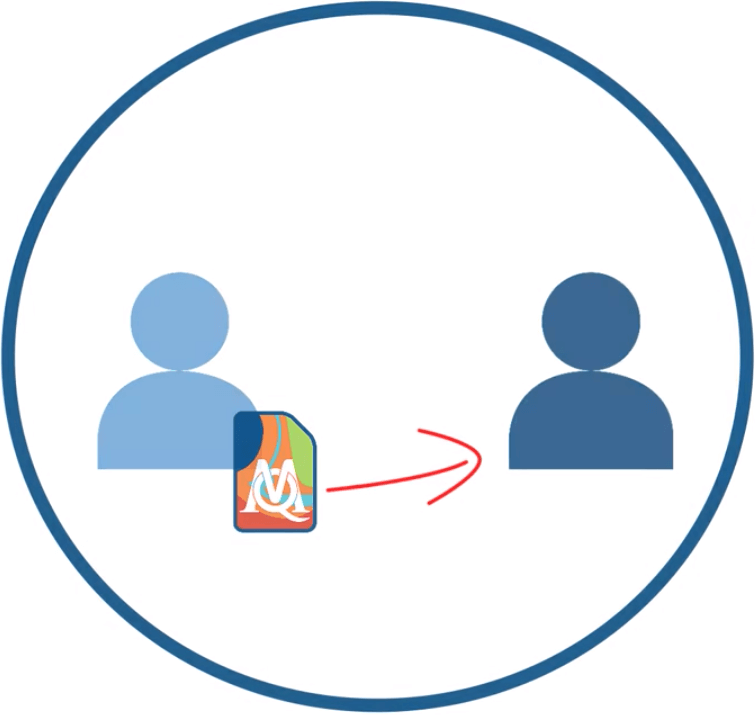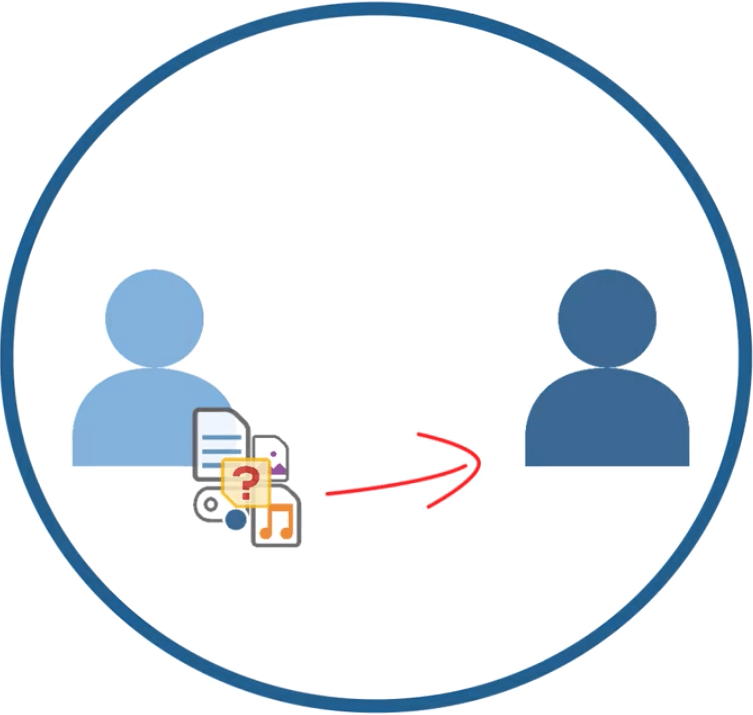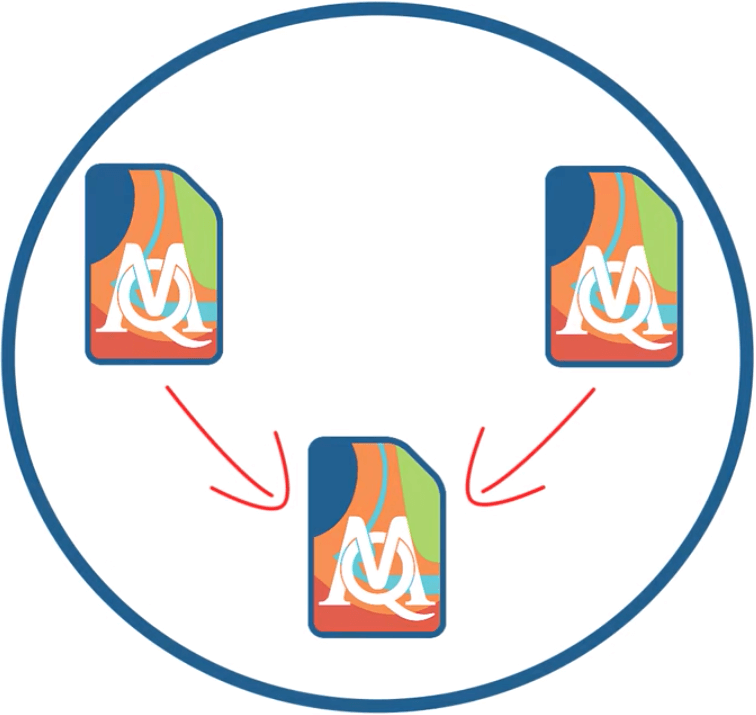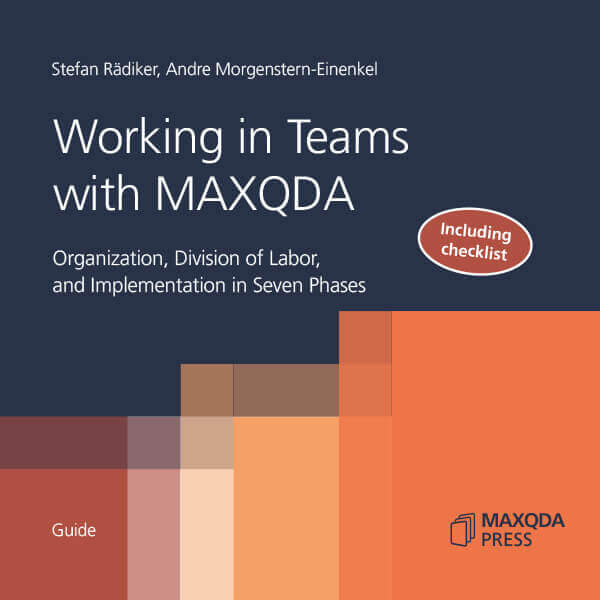In the context of scientific research, the evaluation of documents is often a collective, rather than individual endeavor. This raises the question how MAXQDA allows for teamwork.
Guide: Working in Teams with MAXQDA
This guide combines the organizational, technical and - as far as necessary for understanding - methodological aspects of teamwork in qualitative research projects into a practical manual. In this guide, teamwork is understood not only as the joint analysis of data but as analysis based on the division of labor.
This teamwork is possible in three principle forms, depending on how the team members want to work together.
1. Handing over a complete MAXQDA project to another team member

Different people work with the same master version. They perform online searches, text retrievals, and other kinds of analysis with this master version. But, they do not perform code and memo procedures simultaneously on the master version. The MAXQDA project is therefore passed from team member to team member, each time for further processing.
2. Transfer Coded Segments, Memos, Variables, etc. Between Projects

A MAXQDA project with all the documents to be processed is duplicated for each team member. Each member works on a pre-arranged part of the project, for example only segments coded with selected codes, or only certain documents. At the end, the coded segments, memos, etc. are transferred from the respective projects into a master project.
3. Merging MAXQDA projects

Members of the team edit the documents of a MAXQDA project in collaboration. For example, team member A codes as document 1 to 4 team member B codes documents 5 to 8, and team member C edits documents 8 to 12. Each member is working in a separate project that contains only the documents that he or she is responsible for. At the end, all three projects are merged.
MAXQDA also offers additional functions that are useful for teamwork:
User Access Management
MAXQDA allows you to assign rights for individual users. For example, you can set it up such that others cannot make changes to text documents to ensure that everyone is always working with the same data body.
Intercoder Agreement
Finally, there is a function that checks for intercoder matches. MAXQDA helps you to check and improve the quality of your coding work by comparing yours with other members in your team.

